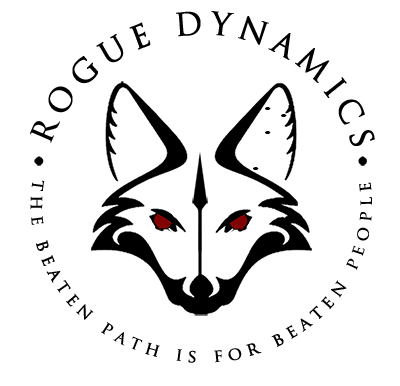
OP-ED FROM THE DEN: UNDERSTANDING TERRORISM
In light of recent events, as well as the ever-present, 24-hour, info-tainment cycle, it becomes pertinent to talk about terrorism: what it really is, where it happens, and who commits it
(for the purposes of this discussion we will focus on terrorism by non-state actors, not as part of an insurgency or those attempting to exercise self-determination).
Various three letter agencies in the United States have varying definitions of terrorism, but what it really boils down to is best defined by Bruce Hoffman as terrorism " Terrorism is thus, violence-or equally important, the threat of violence-used and directed in pursuit of, or in service of, a political aim "(Hoffman, 3). In short, terrorism is not based in religion, ethnicity, race, social or economic class, it is, at its core, all about politics and political power. So if terrorism is based in gaining some political change, then where does it happen, and why do we see it in western-style democracies (such as Belgium, France, the United States, etc)? According to a study done by Feldman and Perala, terrorism occurs in a “semi-repressive political setting in which resource mobilization is somehow possible” (Feldman and Perala, 118). Terrorism is not found in states that have an oppressive political regime, such as North Korea, because the ability to plan, coordinate, and execute attacks does not exist, and the punishment would be too severe (secret prison camps anyone?). However, the term “semi-repressive” can refer to situations in states that are liberal democracies (a state in which rule of law, free and fair elections, protection of basic rights, etc. exists). To continue, if terrorism is about political change, and occurs in “semi-repressive political settings”, then why does it occur in liberal democracies, and why is it committed by so called “home-grown terrorists”? The shootings in Paris, the airport bombings in Brussels, and most recently, the truck crashing into a crowd in Nice were all committed by residents of those states, not foreigners who traveled there for the express purpose of committing the attack. Terrorism occurs when individuals or groups of individuals lack “cost-efficient, non-violent conflict resolution” (Krieger and Meierrieks, 12). In other words, when liberal democracy does not exist, or the procedures inherent to liberal democracy are not practiced equally unto citizens, a semi-repressive situation exists, in which (to some), a non-violent solution does not exist, because the state refuses to hear their voices. France and Belgium are prime examples of this.

As primarily Muslim immigrants from the Middle East and North Africa (including Algeria, Tunisia, Morocco, Libya, and Egypt) are increasingly marginalized and prevented from assimilating into society in these states, the likelihood of terror attacks increases. As the EUROPOL Terrorism Situation and Trend Report 2016 states “Terrorist ideologies aim to give simplistic explanations for fundamental grievances, such as individual failure or discrimination, and promise to solve them through violence” (EUROPOL TESAT 2016, 25). Terrorism in these states has become less about furthering the cause of the Caliphate and radical Islam, and more about retaliation for lack of opportunity and ability to participate in the democratic process, not to mention backlash at the growth of radical right-wing opposition to immigration. The growth of the use of social media and internet recruiting by terrorist groups only makes it easier for terrorist groups to target those individuals and feed into their grievances, as well as giving them a place to belong. However, this methodology is not party only to Islamist terror groups, it can be applied to any terrorist group, looking to recruit and commit attacks, especially across a wide geographical area.
For the average American, this might seem to be a “them” problem-a problem experienced by Europe, by states that are not rooted in the “American dream”. But the reality is, it exists all over the world, even in the United States. As technology allows us to become a more globalized society, with information transmitted rapidly from and too all corners of the globe, we must be cognizant of how that not only allows the creation of communities, but also the exploitation of the lack of community in areas. By working to preserve a state based on the ideas of liberal democracy, especially in terms of protected rights of all people, rule of law, and free and fair elections, the recruiting opportunities and abilities by non-state actor terrorist groups will decline. However, it is something that every individual has a duty to uphold. This means electing officials that preserve the rights of all people (especially those given in the Constitution), ensuring that rule of law (equally applied) is preserved, and that communities of people are built and maintained, rather than divided. Through this (and other factors), the existence of those “semi-repressive political structures” in liberal democracies will decrease, allowing for greater non-violent options of conflict resolution to take place.

Citations Below:
European Union Terrorism and Situation Trend Report (TESAT) 2016.
Feldman, A., & Perala, M. (2004). Reassessing the Causes of Nongovernmental Terrorism in Latin America. Latin America Politics and Society, 46(2), 101-132.
Hoffman, B. (2006). Inside Terrorism. New York: Columbia University Press
Krieger, T., & Meierrieks, D. (2011). What Causes Terrorism? Public Choice, 147, 3-27.



